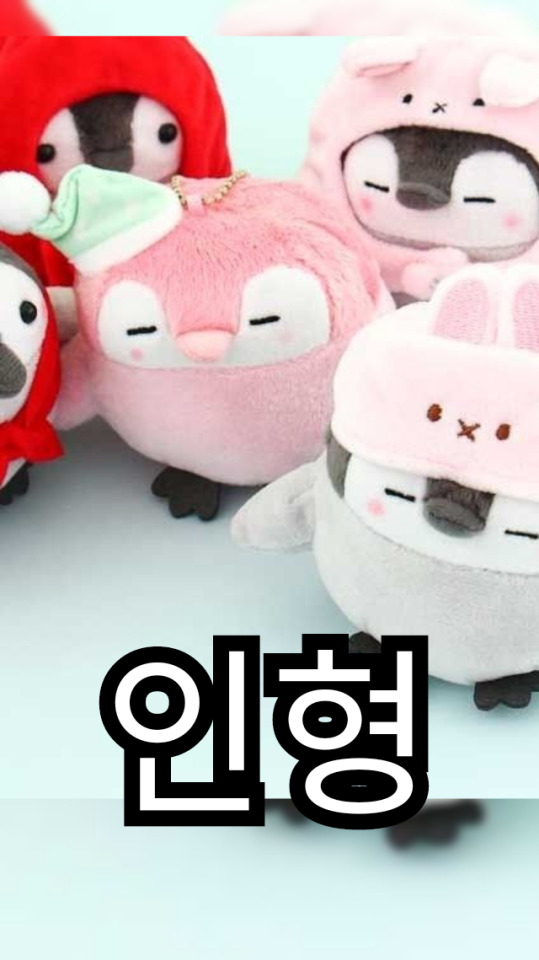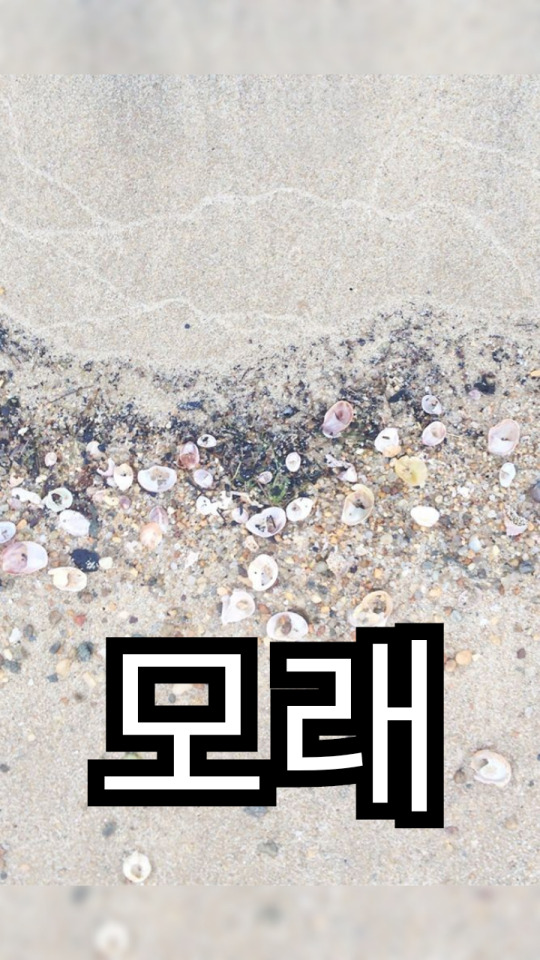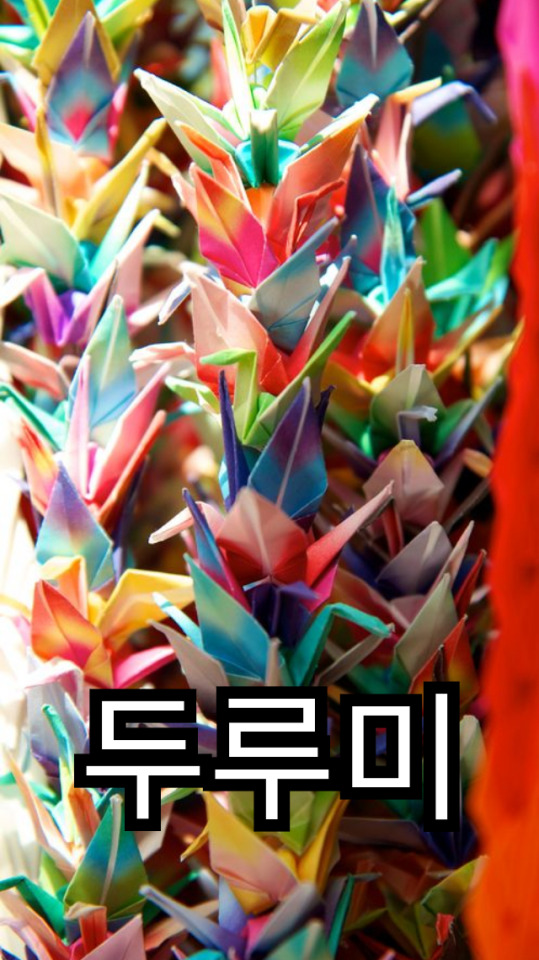Photo

요리하기 어휘 - Cooking Vocabulary
Hi there! I realize I haven’t posted any big vocabulary posts in a while, so I think it’s worth giving you guys a little break from grammar! Enjoy <3
Vocab // 어휘 [mostly korean foods]
음식 - food ~ 한식 - korean food [한국 + 음식]
고기 - meat ~ 물고기 - fish [lit. water meat] ** not the same as 해물 - seafood ** ~ 불고기 - korean marinated beef ~ 닭고기 - chicken ~ 소고기 - beef
소시지 - sausage
밥 - rice / meal ~ 볶음밥 - fried rice
국 // 탕 // 갱 - soup 1. 국 - side dish soup [example: 미역국 - seaweed soup! this is very popular at birthday celebrations] 2. 탕 // 갱 - full meal soup [example: 감자탕 - pork bone soup] ** you might get a side of 국물 [broth] with a main dish **
찌개 // 전골 - stew 1. 찌개 - thicker stew [example: 김치찌개 - kimchi stew] 2. 전골 - hotpot [example: 소고기전골 - vegetable and beef hotpot]
건더기 - ingredients in soup [like vegetables, meat, sauce] ** to help with understanding the difference between 국 and 찌개, you won’t get much 건더기 in a 국 like soup **
어묵 - fish cake
전 - korean pancake ~ 파전 - green onion korean pancake (my favourite)
떡볶이 - stir-fried rice cake
순대 - pork blood sausage
만두 - dumplings
김밥 - for lack of better words, korean styled sushi [lit. rice wrapped in seaweed - 김]
Verbs // 동사
요리하다 - to cook
다듬다 - to prepare
썰다 - to chop / cut
섞다 - to mix [not to be confused with 썩다 - to rot]
젓다 - to stir
반죽하다 - to knead dough
붓다 - to pour
까다 [벗기다] - to skin / peel [to peel / skin meat]
데우다 - to heat
태우다 - to burn
볶다 - to stir-fry
굽다 - to roast / grill
찌다 - to steam
식다 - to cool down
낳다 - to add
기름을 두르다 - to oil
간을 보다 - to taste test
끓다 - to boil
More Vocab // 더 어휘
오븐 - oven
칼 - knife
도마 - cutting board
냄비 - pot
프라이팬 - frypan
밥솥 - rice cooker
Example Sentences:
요즘 한식을 요리하고 싶어요 - these days, I want to cook korean food
10분 만두를 쪄요 - steam dumplings for 10 minutes
건더기를 김치찌개에 넣어요* - add the ingredients into the kimchi stew
어묵을 썰고 끓은 물에 넣어요* - slice the fish cake and add into boiling water
*you can pronounce 넣어요 like -> 너요
That’s it for this lesson today! I hope you enjoyed and you learned something! What’s your favourite Korean food?
Happy Learning :)
~ SK101
2K notes
·
View notes
Note
hi! I was wondering which materials do you use to study korean?
Hello you! For Korean I use different free materials because haha broke and I list them down below:
Talk To Me In Korean: The most known free resource out there for easy grammar points.
How To Study Korean: Deep explanations for different grammar points.
Nuri Sejong Institute: Different simple materials such as grammar, vocabulary, pronunciation, bussiness, kdrama phrases, etc.
Junior Naver: Kid stories with videos and subtitles in Korean.
Kebi Kids: Similar to Junior Naver.
I know there are many great free or paid resources out there but these are the ones I’m using right now and find them pretty effective. Hope it helps ^^
450 notes
·
View notes
Text
Word of the day: 꼬시다
1. to flirt
2. to incite sb to do smthg, to coax sb (ex. 테니스를 치자고 꼬셨어요 = He coaxed me into playing tennis).
#vocabtag#korean#한국#한국어#korean language#koreanblr#korean vocabulary#korean vocab#korean langblr#korea
245 notes
·
View notes
Text
Korean slang — 낙하산

110 notes
·
View notes
Text
Fly High - Dreamcatcher
어둠 - Darkness
꿈 - Dream
시간 - Time
이 - This
밤 - Night
새기다 - To be engraved
위험한, (위험하다) - Dangerous, (To be dangerous)
날아오르다 - To fly high
일곱 - Seven
매일 밤 - Every night
영원히 - Forever
조용히 - Quietly
눈 - Eye(s)
멈추다 - To stop
가시 - Thorn
장미, (로즈) - Rose
거울 - Mirror
��끝 - Fingertip
아픔 - Pain
232 notes
·
View notes
Text

Check out this webtoon! It’s a fun one and the asmrtist is real and has YouTube, I practice speaking with his videos but careful, he got some spicy audios too 😏
#korean#korean language#korea#langblr#한국어#koreanstudy#korean langblr#asmr#asmrtist#korean boyfriend asmr#boyfriend asmr
1 note
·
View note
Text










바다표범 - Seal (바다 - Ocean, 표범 - Leopard, panther)
문어 - Octopus
인형 - Plushie, doll, puppet, figure
모래 - Sand
다리 - Bridge
���범 - Leopard, panther
웜뱃 - Wombat
에뮤 - Emu
두루미 - Crane
코알라 - Koala
66 notes
·
View notes
Text

보조개 // Dimple
그 보조갠 illegal
안돼 위험해 oh yes
So I call you illegirl
존재 자체가 범죄
•
That dimple is illegal
No, it’s dangerous, oh yes
So I call you illegirl
Your existence alone is a crime
위험하다 - To be dangerous
존재 - Existence
범죄 - Crime
From Dimple
66 notes
·
View notes
Text
존댓말 and 반말
This lesson is to learn the differences between 존댓말 and 반말. In addition to that you will learn some Korean honorifics.
There are three politeness levels in Korean. Here is an example of them:
Words ending with -ᄇ니다 are the most polite/ formal. (존댓말)
Words ending with -아요, 어요, 여요 are slightly less formal but still polite. (존댓말)
Words ending with -아, 어, 여 are informal and far more casual. (반말)
Some examples:
고맙습니다 - 고마워요 - 고마워 (Thank you)
반갑습니다 - 반가워요 - 반가워 (Nice to meet you)
알겠습니다 - 알겠어요 - 알겠어 (I understand)
When to use 존댓말 and 반말
You must use 존댓말 if:
The person you are speaking to is older than you
The person you are speaking to you did not give you permission to use 반말 with them
You don’t know or just met the person you are speaking to
You are in a professional environment
You can use 반말 if:
The person you are speaking to if younger than you
The person you are speaking to is older but gave you permission to use 반말 with them
You are the same age as the person you are speaking to
You are writing or speaking to yourself
How to change 존댓말 to 반말
Luckily it is relatively easy to change 존댓말 to 반말. Here’s how:
Present tense:
-아/어/여요 —> -아/어/여
-이에요 / -예요 –> -이야 / -야
Past tense:
-았/었/였어요 —> -았/었/였어
Future tense:
-(으)ᄅ 거예요 –> -(으)ᄅ 거야
Honorifics Vocab:
씨 is added after someone’s name to politely address them.
아줌마 is used to address middle-aged women.
아저씨 is used to address middle-aged men.
선생님 is used to address your senior at work, school, etc… It can also mean “teacher” and “doctor.”
후배 is used to talk about someone who is your junior at work or school. However, you don’t address them as this directly.
언니 is used only by females. This literally means “older sister” but can be used to addressed other older females.
누나 is only used by males. Like 언니, it means “older sister” and can be used to address older females.
오빠 is only used by female. It means “older brother” but can be used to address other older males.
형 is only used by males. It means “older brother” but can be used to address other older males.
More ways to learn:
Video by GO! Billy Korean
Lesson by Talk to Me in Korean
Lesson by kstreet Manila
845 notes
·
View notes
Text
얕다 = to be shallow, superficial
풀 = grass; herb
덮다 = to cover
하류 = 강이나 내의 아래쪽 부분; downstream
애먹다 = 속이 상할 정도로 어려움을 겪다; to suffer hardships; have a hard time.
166 notes
·
View notes
Text
Korean Word Of the Day
두려워 (요)
Doo-lyeo-wo-(yo)
I’m afraid
235 notes
·
View notes
Text
10 KOREAN WORDS OF THE DAY
화나다 (verb): to be angry
쓰다 (verb): to be bitter
놀다 (verb): to play
평가하다 (verb): to evaluate
감동석 (adjective): emotional
욕실 (noun): bathroom
욕조 (noun): bathtub
다치다 (verb): to hurt
잊다 (verb): to forget
여성스럽다 (adjective): girly
389 notes
·
View notes
Text
♡ HOW TO DESCRIBE SOMEONE.
HEIGHT, 키 : 키가 크다 - to be tall 키가 보통이다 - to be “normal” (not so small/so tall) 키가 작다 - to be small
°ㅇ HAIR, 머리 : 머리가 길다 - to have long hair 머리가 짧다 - to have short hair 머리가 금발이다 - to be blond 머리가 갈색이다 - to have brown hair 머리가 까만색이다 - to have black hair 머리가 회색이다 - to have white hair
°ㅇ EYES, 눈 : 눈이 갈색이다 - to have brown eyes 눈이 녹색이다 - to have green eyes 눈이 회색이다 - to have grey eyes 눈이 까만색이다 - to have black eyes 눈이 파란색이다 - to have blue eyes
°ㅇ WEIGHT, 무게 : 뚱뚱하다 - to be fat 보통이다 - to be “normal” 날씬하다 - to be thin 말랐다 - to be skinny
°ㅇ LOOK, 외모 : 예쁘다 - to be pretty 잘생겼다 - to be handsome 못생겼다 - to be ugly
°ㅇ PERSONALITY, 인격/성격 : 성격이 좋다 - to have a good personality 성격이 안 좋다 - to have a bad personality 성격이 고약하다 - to be mean 친절하다 - to be kind 불친절하다 - to be unkind 똑똑하다 - to be smart 똑똑하지 않다 - to not be smart

845 notes
·
View notes
Text
My favorite websites about Korean culture/history (in Korean):
한국민족문화대백과사전 - Dictionary specialized in historical and cultural Korean-related terms
우리역사넷 - Website that explains Korean history and historical figures to young Koreans (초등 level)
KCISA (한국문화정보원) - Official government website about Korean Culture
The Educational Foundation for Koreans Abroad (재외동포교육진흥재단) - Everything’s in the name. They have a vast collection of PDF books you can choose from, including one called 한글학교 학생용 한국문화 explaining Korean culture to low-intermediate students, which I highly recommend.
658 notes
·
View notes
Text
More/less (보다)
보다 - Than. Just attach 보다 to the end of the thing you are comparing something to, and then use “더” to indicate “more” of something.
eg:
나는 너보다 밥을 더 먹었어 - I ate more than you
오늘은 어제보다 더 더워 - Today is hotter than yesterday
나는 평소보다 더 공부하고 있어 - I am studying more than usual
나는 친구보다 펜이 두 개 더 있어 - I have two more pens than my friend
별이 생각보다 더 많아 - There are more stars than I thought
Notes:
1. The word for “less” is 달 but it is more natural to say sentences with “more” in it. For example, if I wanted to say “I’m less clever than you” it would be more natural to change that to “You are more clever than me”.
2. You can use 더 on it’s own to just say “more” without comparison. (eg. 나는 공부를 더 할거야 - I will study more)
3. All these phrases are informal
534 notes
·
View notes
Text
을/ㄹ 것 같아 and 은/ㄴ 갓 같아
을/ㄹ 것 같아 - Used generally for future tense, or things you are not sure about/guessing about. Things you have not experienced.
eg. 지금 배고 안 파서 나중에 먹을 것 같아 - I’m not hungry right now so I’ll (maybe) eat later.
은/는 것 같아 - Used generally to sound “softer” or less direct. Use the version usually for past events/things you have experienced.
eg. 내 냉장고 고장난 것 같아 - It seems like my fridge is broken
Notes:
1. 것 같아 itself usually means “seems like” “I think” “probably” etc.
2. It is common is spoken Korean or on messaging apps for 것 같아 to be spelt/said as 거 같아 . It means the same thing.
3. All these phrases are informal
158 notes
·
View notes
Text
Quoting people in Korean
Verbs: Person who said it은/는 + what they said & verb in plain form + 고 말했어
So it becomes: 친구는 + 그 영화가 너무 좋다 + 고 말했어
Complete sentence: 친구는 그 영화가 너무 좋다고 말했어 - My friend said that movie is really good
eg. 선생님은 학생들이 늦게 도착하겠다고 말했다 - The teacher said the students will arrive late
You can also say who it was said to by adding them in along with 에게/한테/께
eg. 친구는 나한테 그 영화가 너무 좋다고 말했어 - My friend told me that that movie is really good
Adjectives: Very similar to verbs but plain form of 하다 endings is 하다 and not 한다.
eg. 내가 엄마한테 너는 예쁘다고 말했어 - I told my mum that you are pretty
eg. 나는 여행할 수 없다고 말했어 - I said I can’t travel
Nouns (이다): In the past tense, you just add 다고 말했어 to the normal past tense ending
eg. 그 남자가 성생님이였다고 말했어 - That man said he was a teacher
In the present tense, 다고 becomes 라고
eg. 그 남자가 성생님이라고 말했어 - That man said he is a teacher
In future tense, you use “것이다” so it would become 것이라고 말했어 which can then be shortened to 거라고 말했어.
eg. 나는 밥을 먹을 거라고 말했어 - I said I will eat
Notes:
1. In spoken Korean, 말했어 is often shortened to just 했어. The meaning is still the same.
2. In Korean it is also common to use quote form to say your thoughts or beliefs. Just change “말했어” to “생각해” (I think) or “믿어” (I believe)
583 notes
·
View notes